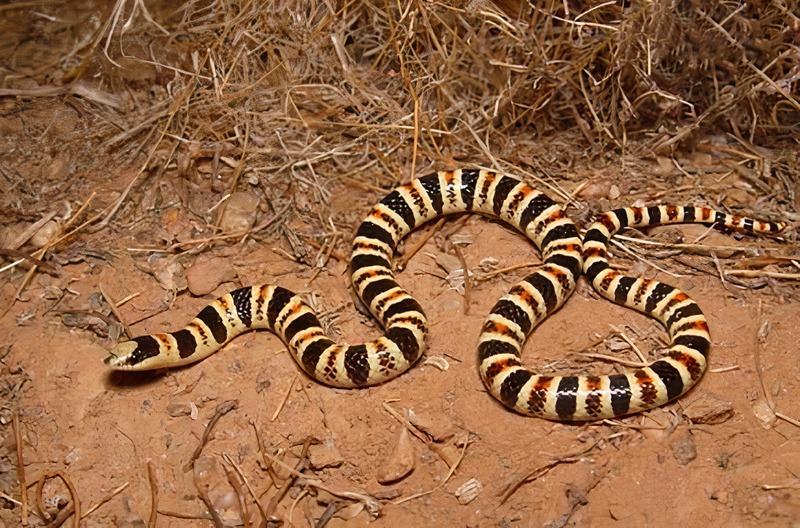AUKUS is the trio formed for Australia to buy nuclear submarines from USA and the UK.
It appears we have much more in common than nuclear submarines.
Each of us faces the undermining of our environments in the name of market forces.
The science warning us about the future meets the face of market-driven greed.
I know it is too long and many will not be concerned while we face the pandemic but. . .
In Australia we have governments, Federal and State, equating fossil fuel with the future. When they talk of the economy and energy they avoid talk of the environment.

| Stop Woodside Climate-Wrecking Gas Project Now! greenpeace.org.au |
Our Australian Federal government is backing the exploitation of pristine waters off the NW coast of Western Australia by Woodside which now contains part of what was BHP. It is called the Scarborough Project. The Australian Coalition, a neo-liberal government, shown by its preference for privatisation and its now clearly market-driven approach to the pandemic, is undermining national efforts to protect the environment, preferring separate deals with different States and Territories.
It still avoids establishing ‘fit for purpose’ National Environment and Biological Diversity legislation required by the Graeme Samuel’s Report on the 1999/2002 legislation.
In the United Kingdom, see how its Environmental Agency has been hamstrung steadily by governments. Read George Monbiot’s essay.

Fishy Business
The ease with which I registered my dead goldfish as a waste disposer shows how total regulatory collapse has opened the door to organised crime.
By George Monbiot, published in the Guardian 24th December 2021
It’s a tragic story, with a happy ending. Until I was seven, I had a goldfish called Algernon. He wasn’t the most exciting pet, but I was quite upset when I found him floating one morning on the surface of his little tank. This, or so I thought, was the end of a short and uneventful existence.
But a few weeks ago, I wrote a column about the failure to regulate waste disposal in the UK. It showed how millions of tonnes of waste, some of it extremely hazardous, are now being handled by organised criminal networks, and illegally dumped or burned, presenting major hazards to our health and to the living world. It showed how the Environment Agency in England and its equivalents in the rest of the UK have lost control, to the extent that anyone can now get themselves officially licensed as a waste disposer, using false information that can remain unchecked.
Some people found this hard to believe. But as chance would have it, at that very moment, the spirit of my dead goldfish spoke to me. With a clarity he had never exhibited in life, he explained that he wished to be registered as an upper-tier carrier, broker and dealer in waste. This would ensure that anyone paying him to dispose of waste materials could be confident that he had met the requisite standards, and was not the kind of fishy operator who would take your money, dump your waste illegally, evade landfill tax and potentially land you, the unwitting householder, with a £5,000 fine for failing to exercise your “duty of care”.
Perhaps motivated by a sense of guilt, as I had neglected him in life, I sought to fulfil his wishes. On the Environment Agency’s website, I affirmed that he was a, ahem, sole trader and had no unspent convictions. I gave his name as Algernon Goldfish, of 49 Fishtank Close, Ohlooka Castle, Derby, and paid the requisite fee. It took less than four minutes. A month on, my long-deceased goldfish remains on the register as a bona fide upper-tier waste dealer. If you want your rubbish safely removed, no job too big or too small, Algernon is your man. Or your fish.
Already, in other words, the system has fallen apart. The government says, “We have pledged to reform the licensing system for waste carriers”, but this has been going on for a long time, and the situation is likely to get worse. Last month, the Environment Agency circulated two memos to its managers. They explained that while reports of pollution, illegal dumping and other kinds of damage are rising, grants for incident management have been reduced in real terms “by 90% in 10 years”. The only events to which it can still respond are those it is specifically funded to investigate, which means incidents at “regulated sites” (such as places handling radioactive waste, certain kinds of illegal waste and those involved in flood control) and water companies.
The memos instructed staff to “not routinely spend time” on anything other than acute catastrophes caused by other businesses. Members of the public reporting incidents at unregulated sites should be “reassured that their report is useful to help us prioritise our work”, and are effectively advised to take the law into their own hands, by speaking directly to the perpetrator. The agency’s officers are then instructed to “shut down report”.
In other words, unless you run a regulated site or are a water company, you can do what you damn well like. Mind you, as a constant stream of filth suggests, if you are a water company or a regulated site you can also do what you damn well like. Everything is fishy now, except our rivers.
There are two categories of crime in this country: those for which you can expect to be prosecuted, and those for which you can’t. There’s no consistent connection between the seriousness of the crime and the likelihood of prosecution. Bag snatchers stealing a couple of hundred pounds a week are more likely to be caught and charged than fraudsters emptying the bank accounts of elderly people. Carrying a few grams of cannabis is more likely to land you in trouble than dumping hundreds of tonnes of hazardous waste.
On one estimate, aside from the fake companies registered on the Environment Agency site, there are more than 250,000 unlicensed (in other words outright illegal) waste disposers in the UK. The number of con artists involved in ripping off vulnerable people and in white-collar fraud must also be high. According to the latest report by the auditors Crowe UK and the University of Portsmouth, in 2020 fraud cost people and businesses in the UK £137bn. Their estimate has risen by 88% since 2007. Yet only 0.4% of fraud is believed to result in a criminal sanction.
Many tens of thousands of people are likely to be involved in the industrial-scale money laundering, tax evasion, shell companies, corrupt practice and concealment of assets in the City of London and its satellites, and the UK’s property market. Large numbers are running coercive labour rackets in farming, car washes, nail bars, restaurants and other businesses. Altogether, it would not be surprising if more than a million people in the UK were engaged in the kind of organised crime that seldom leads to prosecution.
This is what you get from 40 years of deregulation. While good citizens are bound by ever more oppressive laws, “the market”, according to neoliberal theory, should be released from regulatory constraint. Deregulation is a euphemism for destroying the effective capacity of the state to protect us from chancers, conmen and criminals. Empowered to cut corners, fishy businesses outcompete responsible ones and we begin to shift towards an organised crime economy.
As crime syndicates extend their reach and expand their wealth, they become politically powerful. Eventually, mafias become embedded in public life. This is what happened in the US during prohibition. You can see it at work today in Russia, Italy, Mexico and Lebanon. There is no obvious mechanism to prevent it from happening here.
When Steve Bannon, Donald Trump’s chief strategist, announced that his aim was “the deconstruction of the administrative state”, people were horrified. But in reality, it has been happening for years, on both sides of the Atlantic. It’s just that they do it subtly. Our government couldn’t simply close down the Environment Agency: people would be up in arms. Instead, it hacks the budget and creates an institutional culture of demoralisation and failure. The same goes for the other regulatory bodies. Probity, integrity, trust? They sleep with the fishes.
Posted in health & safety, law & order
And in the United States of America the Environmental Protection Agency was trashed by Trump. But this, from the Center for Biological Diversity, refers to the US Fish and Wildlife Service.

Share to FacebookShare to TwitterShare to PrintShare to More
For Immediate Release, January 3, 2022
| Contact: | Noah Greenwald, (503) 484-7495, ngreenwald@biologicaldiversity.org |
Lawsuit Launched to Protect Tucson Shovel-Nosed Snakes Under Endangered Species Act
Rare, Beautiful Snake Wrongly Denied Protection
TUCSON, Ariz.— The Center for Biological Diversity filed a formal notice today of its intent to sue the U.S. Fish and Wildlife Service for once again denying protection to Tucson shovel-nosed snakes under the Endangered Species Act. In response to a September 2020 petition from the Center, the Service denied protection to the species for the second time in September 2021.
“The lovely Tucson shovel-nosed snake needs protection from massive urban sprawl from Phoenix and Tucson,” said Noah Greenwald, endangered species director at the Center. “Protecting this snake will mean protecting more of the natural desert we all love.”
The Center first petitioned for protection of the snake in 2004. In response, the Service found the snake warranted endangered species protection in 2010 but said such protections were precluded by its work to protect other species. In 2014 the agency reversed course and found the snake didn’t warrant protection. In doing so, however, it misinterpreted a genetics study to find the snake had a much larger range than previously thought and therefore didn’t need protection. That conclusion was directly refuted in a letter from the preeminent expert on the snake, the late Phil Rosen, Ph.D. In denying protection once more in September, the Service ignored this new information.
“The U.S. Fish and Wildlife Service is badly in need of reform, but so far we haven’t seen any effort to do so by the Biden administration,” said Greenwald. “It’s not just this little snake that has been wrongly denied protection. Over the years the agency has refused to list dozens of species protections despite clear imperilment, including wolverines and pygmy owls. Even when the agency does protect species, it often takes far too long, sometimes more than a decade.”
The striking Tucson shovel-nosed snake is characterized by alternating black-and-red stripes over its cream-colored body. It has a small range limited to portions of Pima, Pinal and Maricopa counties in an area sometimes referred to as the “Sun Corridor Megapolitan” for its rapid urbanization. Making matters worse, the snake only occurs on flat valley bottoms that are prime development areas.
Like other shovel-nosed snakes, the Tucson shovel-nosed snake is uniquely adapted to swim through sandy soils using its spade-shaped snout. According to a study by Rosen and Center Senior Scientist Curt Bradley, the snake has already lost 39% of its historic habitat to agriculture and urban development; the vast majority of its remaining habitat is unprotected and vulnerable.
Tucson shovel-nosed snake. Photo courtesy of USGS. Image is available for media use.
The Center for Biological Diversity is a national, nonprofit conservation organization with more than 1.7 million members and online activists dedicated to the protection of endangered species and wild places.

It is all symptomatic of what is happening in three basically English-speaking nations.

